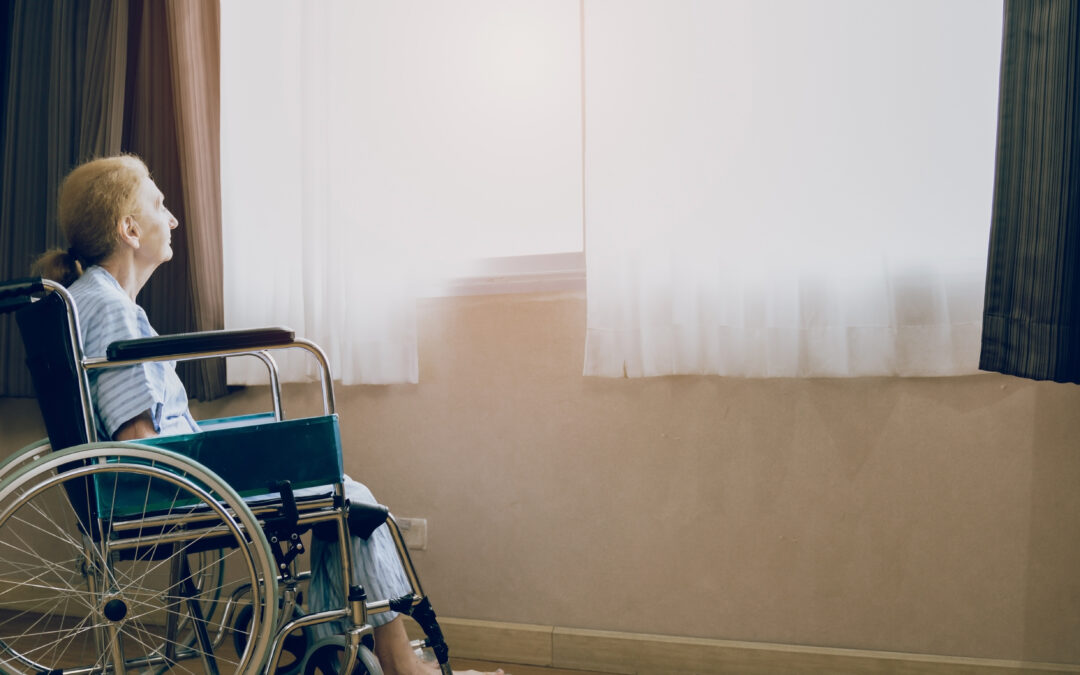Residents of Understaffed Nursing Homes in Disadvantaged Communities More Likely to be Given Inappropriate Antipsychotics, Study Says
Giving older adults antipsychotic drugs, especially when they aren’t indicated, can be dangerous, and using them to manage the behavior of nursing home residents amounts to nursing home malpractice. A new study examines the circumstances under which nursing homes inappropriately treat residents with antipsychotics.
A new study suggests that nursing home residents in disadvantaged communities are more likely to be inappropriately administered antipsychotics, particularly if their homes are understaffed, says a New York University article.
The practice of giving antipsychotic medications—which are used to treat serious psychiatric disorders such as schizophrenia, Tourette syndrome, or Huntington’s disease—to agitated nursing home residents for the purpose of sedating them is a type of “chemical restraint” and equals nursing home malpractice. Recent years have seen a push by the federal government to reduce the inappropriate use of antipsychotics in nursing homes.
In the NYU article, Jasmine Travers, senior author of the study and assistant professor at NYU Rory Meyers College of Nursing, said that it is known that the use of antipsychotics increases among nursing homes with low staffing levels.
“These medications may be compensating for understaffing by sedating residents instead of having adequate staff to support their needs,” said Travers.
The study sought to investigate the link between nursing home staffing, neighborhood socioeconomic factors, and antipsychotic use, and analyzed data from over 10,000 U.S. nursing homes, about 1850 of which exist in severely disadvantaged neighborhoods. Researchers also observed the percentage of residents given antipsychotic drugs despite not being diagnosed with a serious psychiatric disorder. The study found that antipsychotic medication use was higher in understaffed nursing homes in extremely disadvantaged neighborhoods (19.2%) versus less disadvantaged neighborhoods (17.1%).
“This means that in a 100-bed nursing home that is understaffed, two additional residents would inappropriately receive an antipsychotic medication if the nursing home was in a disadvantaged neighborhood versus a more well-off area,” said Travers.
Referencing the study, the article enumerates certain unique stressors that nursing home residents living in disadvantaged areas might experience, including higher rates of crime and noise pollution and less green space. Such stressors can harm residents’ mental and physical health and increase their risk for agitation; this heightened agitation could be a factor in why understaffed workers engage in nursing home malpractice in the form of inappropriately medicating patients with antipsychotics.
Giving elderly nursing home residents medications not prescribed for them is dangerous, and antipsychotics in particular can result in serious, and even life-threatening, conditions. Not only can their sedative properties contribute to increased nursing home falls and bedsores, but antipsychotics also have been linked to heart problems in people who suffer with dementia. Clinical trials furthermore indicate that the risk of death practically doubles for dementia patients who are given antipsychotics, requiring the unfortunate involvement of a wrongful death attorney.
Low staffing in nursing homes is a problem that the Biden Administration seeks to correct through its proposed staffing levels, and short-staffing by nursing homes is another type of nursing home malpractice. The study found that, when nursing homes met the minimum levels of at least three hours of nursing per resident per day as proposed by the federal government, there was not a significant difference in antipsychotic use based on neighborhood.
“Addressing staffing deficiencies, particularly in nursing homes in disadvantaged neighborhoods, will be critical for reducing the overuse of antipsychotics,” said Travers.
Fighting to Preserve Your Loved One from Elder Abuse and Wrongful Death
Attorney Brian P. Murphy is dedicated to protecting the safety and preserving the rights of Pennsylvania, Philadelphia, or New Jersey nursing home residents. As a seasoned nursing home malpractice and wrongful death attorney, Brian Murphy endeavors to hold accountable those Philadelphia/PA or NJ nursing homes responsible for negligence and abuse and every kind of nursing home malpractice. Should you find yourself needing to contact a nursing home malpractice and wrongful death attorney, or if you need guidance in choosing a nursing home, call Brian Murphy today.







